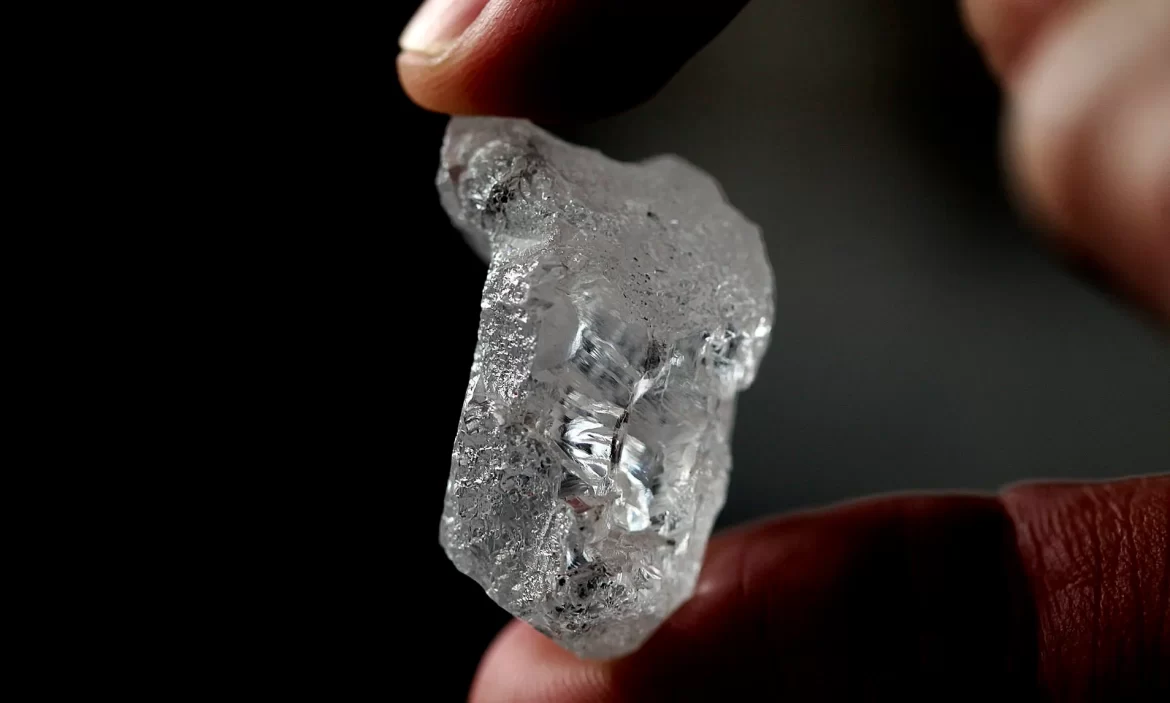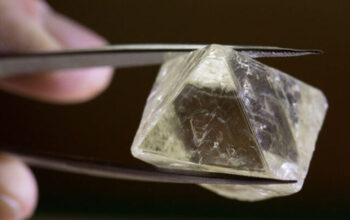Diamond mining giant De Beers has maintained its full-year production forecast of 23-26 million carats but is evaluating options with partners to scale down production as the midstream sector holds unusually high inventory levels, and demand recovery remains slow.
In its third-quarter production and trading report for the period ending September 30, De Beers highlighted challenging trading conditions due to elevated inventory in the midstream and continued weak consumer demand in China.
In response, the company combined its seventh and eighth sales cycles, or “sights,” into a single event and advanced the dates for its ninth and tenth sales cycles in the fourth quarter.
These adjustments aim to support sightholders navigating tough midstream trading conditions as they approach the year-end retail season.
The combined seventh and eighth sight sales will be included in the fourth-quarter production report, as the event extended beyond the third quarter.
As a result, De Beers’ rough diamond sales for Q3 totaled 2.1 million carats from a single sight, generating $213 million.
This marks a decline compared to 7.4 million carats sold across three sights in Q3 of the previous year, which generated $899 million, and 7.8 million carats sold in the second quarter of this year, generating $1.04 billion.
Pricing and Sales Trends
De Beers reported a 4% year-to-date increase in the consolidated average realized price to $160 per carat, attributed to a larger share of higher-value rough diamonds sold, though partially offset by an 18% decrease in the average rough price index.
However, the average price in the third quarter declined by 4% year-on-year to $128 per carat and was 10% lower than in the previous quarter.
“De Beers Jewellers saw consistent performance, with growth in design-led pieces, while demand for bridal and solitaire pieces faced challenges due to economic pressures and a slower recovery in China.
Forevermark’s global operations have scaled down, aligning with a strategy shift to focus the brand on India,” the company noted.
To enhance consumer engagement, De Beers announced new marketing collaborations with major jewelry retailers Signet in the U.S. and Chow Tai Fook in China.
These partnerships aim to bolster the desirability of natural diamonds in two of the world’s largest diamond consumer markets.
Innovation in Diamond Authenticity: DiamondProof Device
De Beers also introduced “DiamondProof,” a new tool for rapid distinction between natural and lab-grown diamonds at the retail counter.
The device supports retailers by allowing them to communicate the unique attributes of natural diamonds to consumers, enhancing confidence in their purchases and helping prevent the introduction of undisclosed lab-grown diamonds into the natural diamond supply chain.
Production Overview
In response to lower demand and high midstream inventory, De Beers’ third-quarter rough diamond production dropped by 25% year-on-year to 5.6 million carats, reflecting a strategic focus on managing inventory and working capital. Total group production for the nine months ending September 30 decreased by 21% year-on-year to 18.88 million carats.
- Botswana Operations: Production in Botswana fell by 32% year-on-year to 4 million carats in the third quarter, reflecting production reductions at the Jwaneng mine. Year-to-date, Botswana’s output decreased by 26% to 13.69 million carats.
- Namibia Operations: Namibian production declined by 14% to 500,000 carats for the third quarter due to planned reductions at Debmarine Namibia, offset by higher-grade mining and improved recoveries at Namdeb. Year-to-date, production decreased by 6% to 1.65 million carats.
- South Africa Operations: South Africa’s output rose by 41% year-on-year to 500,000 carats in Q3 as the Venetia underground mine ramped up production. Year-to-date production increased by 3% to 1.61 million carats.
- Canada Operations: Production in Canada declined by 11% to 600,000 carats for the quarter due to the planned processing of lower-grade ore, with year-to-date production down by 5% to 1.92 million carats.
De Beers’ measured response to fluctuating demand and midstream conditions, alongside the launch of the DiamondProof device and strategic collaborations, reflects its adaptability in a challenging market while underscoring its commitment to innovation and consumer confidence in natural diamonds.
![]()




